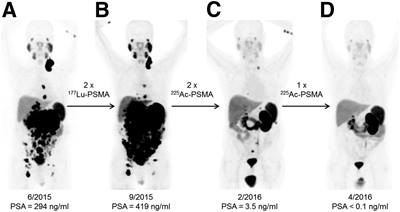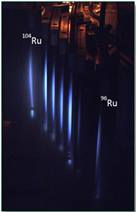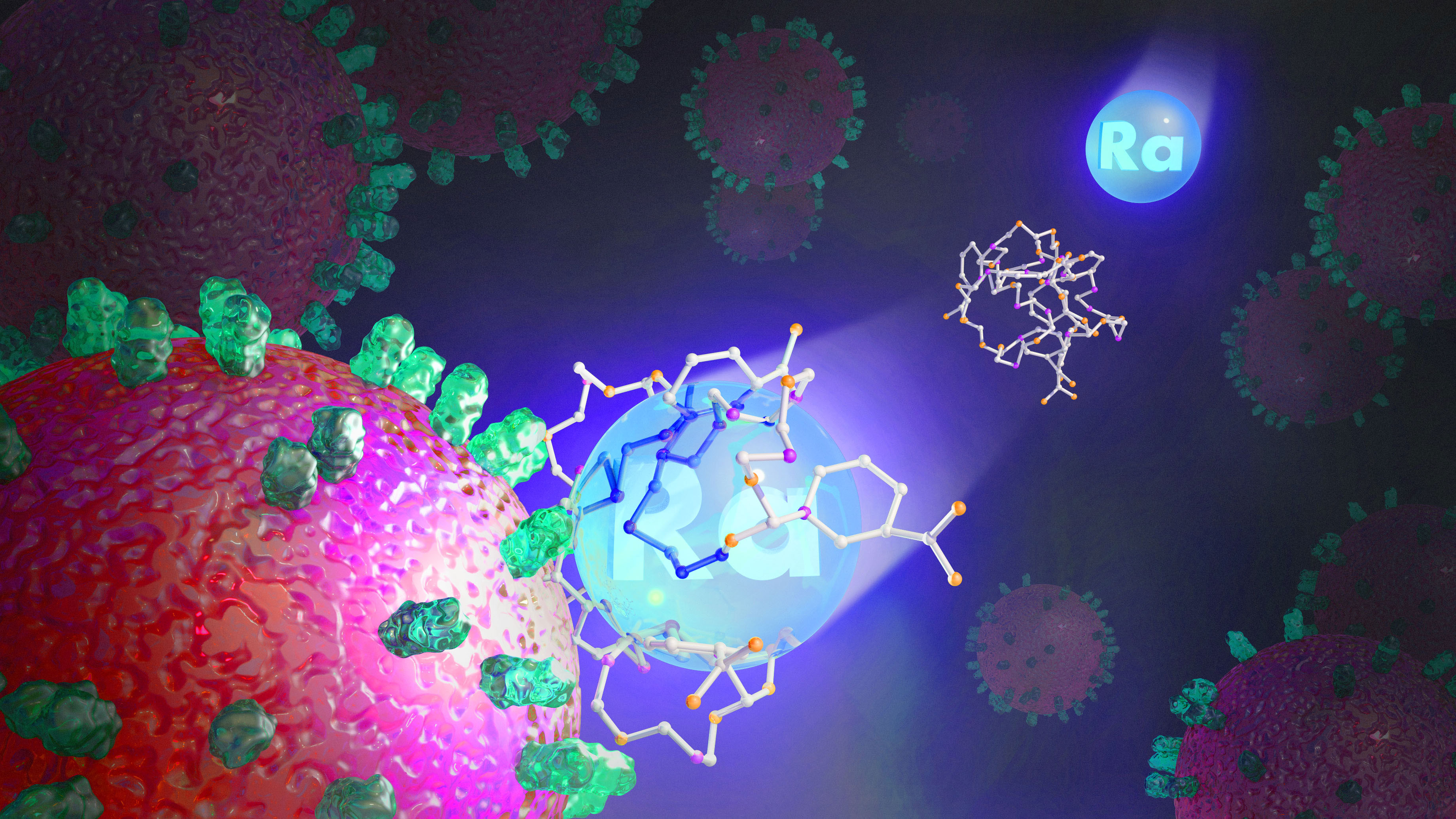Research
The DOE Isotope Program (DOE IP) supports world-leading research and development (R&D) associated with creating novel and more efficient isotope production and processing techniques to assure availability of critical isotopes that are in short supply to address the needs of the Nation. DOE IP R&D is focused on technologies for production and processing of radioisotopes using reactor and accelerator facilities and new technologies for enriching stable isotopes. The Program lies at the intersection of many scientific disciplines including nuclear and radiochemistry, nuclear physics, accelerator and reactor science, materials science and engineering, separations science, isotope enrichment, and nuclear data to name just a few. Workforce development is viewed as an essential component of the Program’s R&D.
The Program’s R&D has two primary components: (1) support of R&D via competitive funding opportunity announcements open to both universities and national laboratories, and (2) the provision of core R&D funding to national laboratories and universities with expert competencies in isotope production and processing to nurture that technical expertise and accomplish high priority R&D. Priorities in isotope production research are informed by guidance from the Nuclear Science Advisory Committee (NSAC) as described in the 2015 Long Range Plan for the DOE IP published in July 2015 under the title “Meeting Isotope Needs and Capturing Opportunities for the Future.”
The DOE IP supports core research groups at ANL, BNL, INL, LANL, ORNL, and PNNL to conduct transformative research for novel or advanced production and separation techniques for high priority isotopes in short supply. The DOE IP also supports universities with unique capabilities, such as the multi-particle cyclotron at the University of Washington where full-scale production of astatine-211 was developed to support research into the use of the isotope in cancer therapy; and the University of Missouri Research Reactor which the DOE IP uses for the production of lutetium-177 for cancer therapy research, and selenium-75 for biomedical research. Program R&D funding also supports implementation of isotope production capabilities at additional facilities at Texas A&M University, Duke University, University of Pennsylvania, University of Wisconsin, and University of California, Davis. The coordinated university network is designed to leverage the unique and often underutilized facilities available at academic institutions which are generally more suited to low-energy production reactions and can support nationwide availability of short-lived radioisotopes.
Efforts to create novel approaches to enable the provision of isotopes for targeted alpha therapy for cancer treatments and theranostic isotopes (combined diagnostic and therapeutic applications) are a focus for the Program. A high priority of the DOE IP remains the dedicated research effort to develop large scale production capabilities of the alpha-emitter actinium-225 (Ac-225), a high priority isotope that has shown stunning success in the treatment of diffuse cancers and infections; in the past, available quantities have limited clinical trials and applications. The DOE IP leads the world in the provision of Ac-225 and development of novel production routes. DOE IP is continuing research to develop efficient full-scale production and processing capabilities to enable sufficient supply of the isotope for cancer treatment.
Scientists perform simulations and conduct cutting-edge research to develop stable isotope enrichment capabilities. Every stable isotope enriched requires an intense and independent research campaign. Current efforts focus on ytterbium-176 as feedstock for isotopes that treat prostate cancer, xenon-129 for polarized lung imaging, Mo-100 as feedstock for Mo-99 production, and isotopes for quantum computing. Dedicated machines are designed and optimized for isotopes of interest for quantum computing. In addition, as this technology is dual-use; nurturing a core competency in this technology is vital to the Nation. R&D associated with purification and processing of the existing isotope inventory continues and other enrichment technologies are investigated.
Emphasis is placed on providing training opportunities to students, post-docs, and junior scientists to help assure a vibrant workforce essential to the technologies associated with isotope production. The DOE IP sponsors a virtual seminar series for junior scientists to showcase their research results to various members of the isotope community, including DOE, federal national laboratory researchers and various institutes of higher education. DOE IP also sponsors workshops at professional society meetings to promote communication of advances in isotope availability. Participation in the DOE Office of Science Early Career Research Program supports the development of outstanding junior scientists early in their careers in isotope science (among other areas). The DOE SC Graduate Student Research Program offers graduate students the ability to complete their dissertation work at a DOE National Laboratory. The DOE IP also invests in the Nation’s future nuclear chemistry and biomedical researchers through support for the Nuclear Chemistry Summer School (NCSS) program. The NCSS consists of an intensive six-week program of formal accredited lectures on the fundamentals of nuclear science, radiochemistry, and their applications in related fields, as well as laboratory practicums focusing on state-of-the-art instrumentation and technology used routinely in basic and applied nuclear science.






